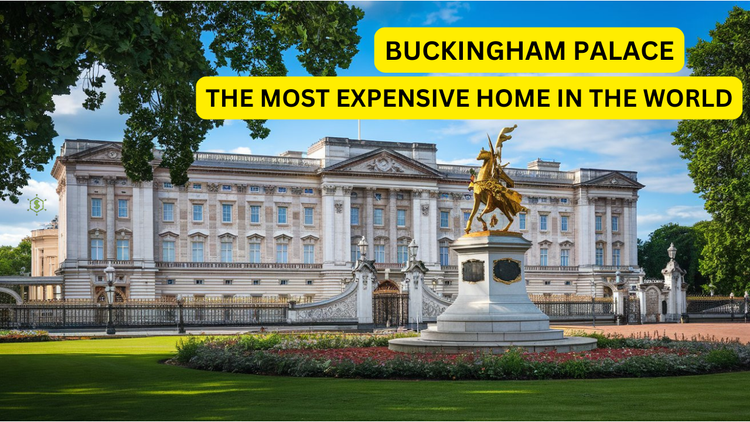$7 Billion Record-Breaking IRS Estate Tax Payment Reveals Late Texas Billionaire Was Way Richer Than Anyone Knew
Discover how a Texas billionaire’s estate made history with a $7 billion estate tax payment to the IRS. Uncover the hidden wealth, estate tax strategies, and lessons in managing ultra-high net worth estates.
TOPICS COVERED
- Billionaire estate tax
- Record-breaking IRS estate tax payment
- Texas billionaire wealth
- Ultra-high net worth estate planning
- Estate tax loopholes
- IRS billionaire tax collection
- Wealth management tips
Introduction: A Shocking Revelation of Hidden Wealth
A $7 billion estate tax payment to the IRS has shattered records, confirming that a late Texas billionaire’s wealth far exceeded public expectations. Not only does this landmark payment highlight the staggering fortune accumulated, but it also raises crucial questions about the hidden net worth of the ultra-rich, estate planning tactics, and the economics of wealth transfer.
In this post, we’ll break down:
- How estate tax laws function for billionaires
- The legacy and mystery of this Texas billionaire
- Key lessons on wealth planning from this historic case
- Strategic tools that high-net-worth individuals use to manage taxes legally
The $7 Billion IRS Estate Tax Payment: A Historical Milestone
In an unprecedented move, the IRS collected $7 billion from the estate of a deceased Texas billionaire, marking the largest-ever estate tax payment in U.S. history. To put this into perspective, this payment alone exceeds the total annual revenue of some Fortune 500 companies.
This revelation sheds light on two significant aspects:
- The Complexity of Estate Taxes: Federal estate taxes, which currently apply to estates worth over $12.92 million (as of 2023), are designed to capture a share of wealth as it passes to heirs.
- Undervalued Assets and Hidden Wealth: While the billionaire kept a relatively low public profile, the size of this payment indicates that significant wealth was hidden in trusts, private assets, and offshore accounts, only surfacing after death.
Who Was the Mysterious Texas Billionaire?
Though specific names are kept confidential under federal privacy rules, insider reports suggest the billionaire operated in the oil and energy sectors, both hallmarks of Texas’ economy. His wealth was deeply entrenched in a network of private equity, land holdings, and high-performing companies.
🔍 Learn more about How the Rich Use Private Equity to Multiply Their Wealth.
Forbes had initially estimated the billionaire’s net worth at around $10 billion, but the massive estate tax payment implies that the true fortune may have been closer to $20-25 billion. The discrepancy underscores how even the best financial analysts often underestimate the real value of private wealth.
How Billionaires Structure Their Estates to Minimize Taxes
So, how do ultra-high-net-worth individuals (UHNWIs) like this billionaire avoid paying massive estate taxes while they’re alive? It turns out that wealth planning strategies, particularly estate freezes, trusts, and offshore accounts, play a pivotal role.
Key Estate Planning Tools for Billionaires
- Irrevocable Trusts: By transferring assets into irrevocable trusts, wealthy individuals remove them from their taxable estate, reducing the IRS’s cut.
- Grantor Retained Annuity Trusts (GRATs): A popular tool that allows billionaires to transfer wealth to heirs with minimal tax exposure, based on the appreciation of assets.
- Family Limited Partnerships (FLPs): These structures allow families to retain control of their wealth while benefiting from lower valuation and gift taxes.
Breaking Down the $7 Billion Tax Payment: What Does It Include?
The IRS estate tax covers multiple asset classes, including:
- Real Estate and Land Holdings: Texas, with its booming real estate market, played a significant role in the billionaire’s fortune.
- Stocks and Private Companies: Shares in private energy companies, high-yield dividends, and oil futures were likely part of the estate.
- Luxury Assets: The billionaire’s personal collection of yachts, planes, and fine art would also contribute to the valuation.
What This Means for Estate Taxes in the Future
This $7 billion estate tax payment is not just a one-off event—it sets a precedent. As governments worldwide target wealth inequality, IRS enforcement is likely to tighten. Billionaires and family offices will need to further innovate their strategies to protect their fortunes.
Additionally, policymakers may use this case to push for reforms, such as:
- Lowering the Estate Tax Threshold: Making more estates taxable at lower valuations.
- Closing Loopholes in Trusts: Targeting loopholes in GRATs and dynasty trusts used by the wealthy.
- Increased Scrutiny on Offshore Wealth: Cracking down on offshore banking and tax havens.
What Can We Learn from This Case?
This case offers valuable insights, not just for billionaires, but for anyone involved in wealth management. Here are three key takeaways:
- Transparency is Key: Wealth estimates are often inaccurate, especially for those with private holdings.
- Start Estate Planning Early: Estate planning is not just for the ultra-rich; anyone with significant assets can benefit from trusts and other strategies.
- Stay Updated on Tax Laws: Tax policies are always changing. Make sure your estate planning strategies are aligned with the latest laws.
Why Transparency in Wealth Reporting Matters
One of the most intriguing aspects of this case is how much of the billionaire’s wealth remained undisclosed until his death. It raises larger questions about the ethics and transparency of wealth accumulation in the U.S. Should billionaires be required to disclose their assets more thoroughly? Or is privacy a fundamental right, even for the super-wealthy?
How to Protect Your Wealth: Key Steps for Estate Planning
While you may not have billions to worry about, proper estate planning ensures that your wealth passes smoothly to your loved ones. Here’s what you can do:
- Create a Will: A legally binding will is essential to avoid disputes.
- Consider Trusts: Use trusts to reduce taxes and ensure privacy.
- Hire an Estate Planner: A professional can help align your wealth strategies with legal requirements.
- Stay Informed: Regularly review and update your estate plan, especially after major life events or tax law changes.
Conclusion: A Wealth Lesson from the Billionaire Elite
The $7 billion estate tax payment by the late Texas billionaire reveals just how much wealth can remain hidden, even from the most watchful eyes. It also underscores the importance of proactive estate planning for anyone with significant assets. Whether you're worth millions or managing a modest estate, planning ahead ensures your wealth is protected, and taxes are minimized.
Stay Connected with Us on Social Media!
For more insightful articles on wealth management, estate planning, and financial success, follow How To Buy Money on your favorite platforms:


